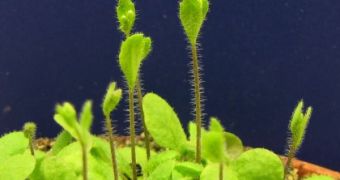A new scientific study has demonstrated that plants growing from the same seeds have the natural tendency of avoiding competitions with each other. Furthermore, they were shown to collaborate in a way that was not obvious when the “family” had to duel other plants for survival. The scientists, based at the University of Delaware, in the United States, also showed that plant siblings shared their food equally, in a way that was not even visible in human children.
In their experiments, the scientists studied more than 3,000 mustard seedlings, growing in several separated containers. They learned that plants coming from the same seed released chemical factors into the ground, which allowed them to recognize each other. When they sensed these agents, the plants renounced their default strategy of battling enemies, which involved growing roots very deep and very fast, so as to suck up as much water and minerals as possible in the shortest time-frame. If they did that while among their “brethren,” they would undoubtedly mark the death of the family, the scientists say.
“It’s possible that when kin are grown together, they may balance their nutrient uptake and not be greedy,” UD plant biologist Harsh Bais explains in a press release. Details of the investigation are scheduled for publication in an upcoming issue of the scientific journal Communicative and Integrative Biology, Wired reports. Bais says that the recognition patterns the plants exhibited are directly correlated to the chemicals they produced in their roots. When the team inhibited their production, the cooperative behavior disappeared, and even siblings went against each other for dominating food sources.
“Often we’ll put plants in the ground next to each other and when they don’t do well, we blame the local garden center where we bought them or we attribute their failure to a pathogen. But maybe there’s more to it than that,” Bais adds. “There is a possibility that the explanation of the trade-offs is not that simple. We have found that plants could resist pathogens better when grown with siblings compared to strangers, so I would take this with caution and not stretch it to all the plant species,” he concludes.

 14 DAY TRIAL //
14 DAY TRIAL //